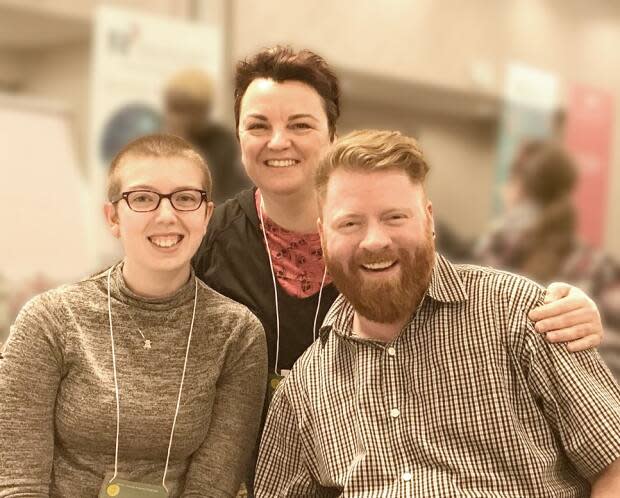New website aims to improve care for LGBTQ cancer patients
A new website aims to tackle the disparities LGBTQ cancer patients face in access to screening, treatment and support, its creators say.
Queering Cancer is a new website that will go live next week and offer peer support and resources for cancer patients who identify as LGBTQ, and health care professionals. The website will include a searchable database of cancer information and resources, a peer support forum and a collection of stories from cancer patients.
"LGBTQ cancer patients traditionally find it difficult to access resources and services that are useful and specific to them," said Amanda Bolderston, a radiation therapy educator at the University of Alberta who helped create Queering Cancer.
"So the researchers who put together Queering Cancer, we recognize this gap, we all work in the same area."
The website goes live on Tuesday, Oct. 27.
Bolderston said the gap in resources and supports exists often because LGBTQ patients have had past negative experiences with health care workers that makes them reluctant to seek help. When this translates to less cancer screenings or patients who are reluctant to come forward with symptoms, it can lead to worse outcomes for patients.
It can make a big difference then for patients to feel they're recognized for who they are in the medical help they receive. This could mean patients not getting appropriate sexual health information or referrals.
"It starts really by allowing patients to come out, because patients who come out can be who they are with health care professionals," said Bolderston who was interviewed on CBC Radio Active on Friday. "They get better support, they're more satisfied, they actually get better outcomes."

Care can be improved by providing better education for health care professionals, Bolderston said. Health care professionals should tailor their language and actions appropriately to their clients, Bolderston said, arguing that not doing this is a significant flaw in the care they provide and can lead to worse outcomes.
The project has also received funding to operate from the Canadian Institutes of Health Research's Institute of Gender and Health (IGH).
Bolderston said she hopes it's useful not just for patients, but also for caregivers and educators, adding that the stories patients share on the website could be used as teaching tools. But mainly, she said she hopes patients see themselves reflected in the care they receive, find resources useful to them and a community of support.
"We hope that people aren't going to feel so alone, that they know that there's a huge community of cancer patients out there that are going through experiences similar to them," Bolderston said.

